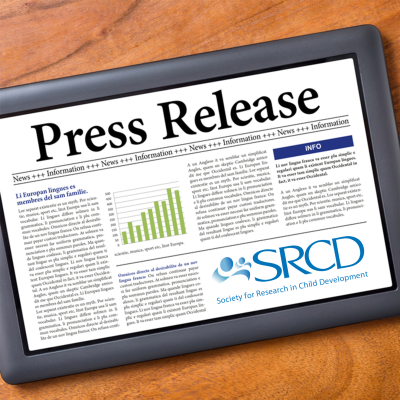Helping Behavior May Mitigate Academic Risk for Children from Low-Income Neighborhoods
PRESS RELEASE / CHILD DEVELOPMENT: Embargoed for Release on February 17, 2021
Children raised in neighborhoods with low socio-economic status are at risk for low academic achievement. A new longitudinal study followed young children from such neighborhoods from birth until age seven to explore whether children’s capacity to act kindly or generously towards others (prosocial behavior) – including peers, teachers, and family – is linked to their ability to perform well in school. The study showed that prosocial behavior may mitigate academic risk across early childhood.
The findings were published in a Child Development article written by researchers at Stanford University and the University of Leeds, and the Bradford Institute for Health Research.
“Identifying factors that can help children achieve academic success is a crucial step to informing interventions that may reduce educational disparities between children,” said Emma Armstrong-Carter, doctoral candidate in the Stanford University Graduate School of Education. “This research turns our attention to the connections between social and academic outcomes for children. It suggests that supporting positive social behavior may be one way to foster children’s academic success where the odds are against them.”
The study included 1,175 children and their families from Bradford, England, who were predominantly of White European or South Asian ancestries. Children were followed from birth until the age of seven with measurements taken at four times from 2007 to 2010.
The researchers used the following methods:
- Governmental indices of neighborhood-level socioeconomic status,
- Teacher observations of prosocial behaviors (e.g., “This child is considerate of other people’s feelings,” or “This child is helpful if someone is hurt”), at ages 4-5
- Direct assessments of three academic outcomes: teachers’ observations of children’s progress towards early learning goals at ages 4-5 years, teachers’ assessment of phonic skills (ability to correlate sounds with letters or groups of letters in an alphabetic writing system) at ages 5-6 years, and academic performance assessed on a standardized school-based assessment, including math, reading and science, at ages 6-7.
Low neighborhood socioeconomic status was associated with poor academic outcomes only for children who displayed low levels of prosocial behavior and not among children who displayed high levels of prosocial behavior. This pattern was consistent across the three measures of educational progress taken from ages 4 to 7. The authors note that stronger prosocial behavior may act as a protective factor for educational outcomes in a number of ways. For example, children who are perceived as more helpful may be more likely to be liked by their teachers and receive more positive attention compared to their peers who tend to help less. When helping others, children may also have opportunities for cognitive stimulation by practicing skills such as taking the perspective of others and communicating with them.
“Our research suggests that fostering prosocial behavior during early childhood may be one way to protect against academic risk for those living in low- income neighborhoods,” said Armstrong-Carter. “It is possible that teachers, parents and mentors may be able to help children achieve academic success by modeling, teaching, and fostering the development of helping behaviors.”
The authors recognize that they were unable to measure the specific relationships between parents and teachers, and experiences when helping peers. The authors also acknowledge the need to replicate this study in other samples outside of Bradford, England, to see if the results are generalizable across different geographic and cultural contexts. This study was correlational, so future research should explore whether prosocial behavior causes children to be protected from academic risk that occurs in neighborhoods with low socioeconomic status; for example, by randomized interventions designed to increase children’s prosocial behavior.
###
The current work is supported by the Institute of Education Sciences (United States) and by the Research Mobility Award grant. Born in Bradford (BiB) receives funding from Welcome Trust (United Kingdom), National Institute for Health Research (United Kingdom), Medical Research Council (United Kingdom), National Institutes of Health (United States), and the European Research Council.
Summarized from Child Development, Young Children’s Prosocial Behavior Protects Against Academic Risk in Neighborhoods with Low Socio-Economic Status by Armstrong-Carter, E. (Stanford University), Miller, J.G. (Stanford University), Hill, L.J.B. (University of Leeds and Bradford for Institute for Health Research), Dominigue, B.W. (Stanford University). Copyright 2021 The Society for Research in Child Development, Inc. All rights reserved.


